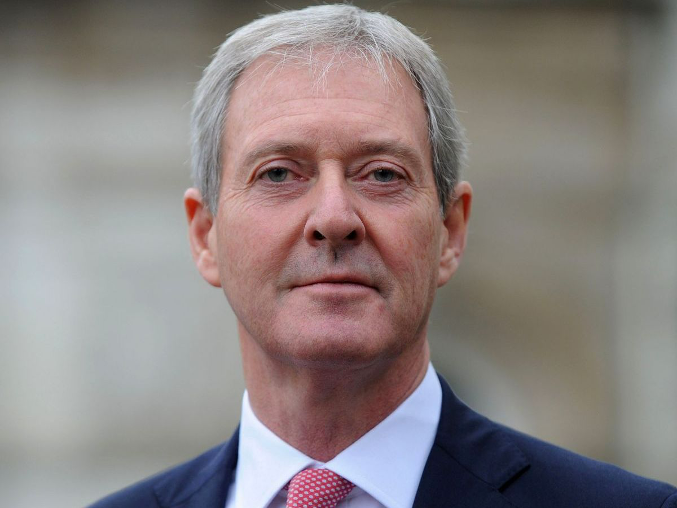In The News
The Care Cap Delay Divides Opinion
Following the Chancellor’s decision last autumn to increase council tax to fund social care and to delay the care cap, division has emerged between policy wonks and local government.
Autonomy for councils provides stability, but care cap delay has doubters
The government's thinking is that by allowing councils to independently determine their taxation increases within a margin of 5 per cent, this would provide a rapid cash injection into the social care budget for the next two years; up to £7.5bn will be made available if councils make full use of these budgeting powers.
The two year delay to the cap on care costs has reduced the Department of Health and Social Care’s budget for councils to spend on local care from £600 million to £162 million per year. This move was heavily criticised by economist and architect of the reforms, Andrew Dilnot, who stated that the care cap delay is a “breach of promise for some of the most vulnerable people in our society”.
The initial proposal has been shelved until after the next general election, with the chairman of the County Councils Network, Tim Oliver (see our interview with Tim below) remaining steadfast in his support for the government’s decision: “Postponing these reforms and reinvesting significant additional funding into front line care services is strongly welcomed and will protect the most vulnerable in our society as well as buy councils vital time to stabilise the care system.”
Although tax increases have been backed by the Levelling Up department due to more deprived areas gaining access to more money per household, the Local Government Association has remarked that the bulk of the funding for councils comes in the form of “one-off grants, ring-fenced funding, re-allocation of existing funding, and the assumption that local authorities will implement council tax increases,” stressing the need for long term budgeting guarantees.
The Labour leader for Cheshire East Council, Sam Corcoran, refutes this notion, saying that the only alternative to local taxation autonomy would be "drastic cuts to front line services".
In this edition, we delve deeper into the ramifications, both positive and negative, of the Chancellor’s autumn plan for social care. We hear more from the CCN's Tim Oliver who believes the care cap delay benefits local authorities and why Dr Ruth Allen believes it's a sticking plaster solution for a much bigger issue.
Interview
This month we sat down with Cllr Tim Oliver, chairman of the County Councils Network (CCN), to better understand his take on the Government's decision.

What does the proposed £2.8bn increase in funding for the adult social care sector mean for local authorities?
This funding, on top of retaining £1.3bn for the social care reforms next year, will give councils the means to help address inflationary pressures this year and next year, meaning that truly unpalatable decisions over tightening eligibility for care services or reducing services can be avoided. It will allow councils to commission more care packages to address demand, stabilise services in the short term, and work with health partners to improve hospital discharge rates.
However, it should not be seen as a panacea and particular funding challenges remain, as well as the overall accessibility to care services for people in county areas.
Do you believe the Chancellor’s decision to delay recommendations in the Dilnot report, including the social care cap, was a good decision for local authorities?
It is. My fellow county leaders from across the country and I support the principle of the government’s reforms, but the County Councils Network released two reports this year that showed that that the government’s proposed charging reforms have been substantially underestimated, which could have led to widespread provider failure. In addition, inflationary costs this year could add £3.7bn to councils’ care costs this year and next.
Areas that can raise more in council tax also receive less in direct government funding. Overall, those areas with the highest social care needs will receive higher amounts of overall funding.
Faced with these challenges, it would have been a recipe for disaster to have implemented the reforms that are planned in October 2023. We understand some in the sector are disappointed, but the delay buys councils valuable time to stabilise the system and the government time to analyse the costs of these reforms.
What does the five per cent increase in council tax mean for adult social care across the country? Will it cause disparities in the quality of social care as some have predicted?
It means that councils have another lever to pull in terms of raising revenue across the country with local authorities having made use of the social care precept over the last few years.
Whilst council tax raises more funding in different parts of the country, it is too simplistic to say this will cause disparities in the quality of care. Areas that can raise more in council tax also receive less in direct government funding. Overall, those areas with the highest social care needs will receive higher amounts of overall funding.
How likely are councils to implement the five per cent increase? What would the barriers to implementing it be?
I can’t speak for what colleagues will be doing across the country, but I know they will be taking into consideration cost-of-living pressures for residents and balancing this against their financial challenges in setting a balanced budget.
OPINION
Dr Ruth Allen, Chief Executive of the British Association of Social Workers (BASW) sets out her thoughts on the delay.

When the Chancellor Jeremy Hunt announced in his Autumn statement that the social care funding cap would be postponed for two years until after the next election, that the Kwarteng reversal on national insurance rises would be retained and that Councils would have more freedom to raise local Council taxes, we knew we were hearing a budget void of ideas on how to tackle the deep strategic and systemic problems we have in social care. Again.
Postponing the care cap was clearly an unjust blow to people planning near future finances around the cap coming in. And there were many leaders who strongly felt the care cap change would at least show high level change can happen after years of stasis.
But in parts of social care there was a sigh of relief at the delay given the eye watering workload pressures in local authorities. This is the reality of social care now; not enough money, not enough staff to recruit; not enough experienced staff staying; too many providers pulling out; inflation eating into care costs and making pay even more paltry for so many workers (overwhelmingly women) working in the many vital roles of social care.
Hunt did announce some new money - £2.8bn in 2023/24 and £4.7 bn in cash terms for social care. Some is coming from new government grants; a lot is recycled out of the postponed implementation of the cap and more (and unknown amount) may be raised from Council taxes. It sounds a lot, but it isn’t enough according to all credible gap analyses and, perhaps even more importantly, it is a temporary uplift when all parts of the system need long term financial and workforce planning. The latter was promised by Hunt, but when and with what likelihood will the government see this through?
The primary purpose of the additional social care money is to speed up the discharge of people from hospital - to ‘free up’ the NHS. Important as discharge is, one wonders when anyone will ask ‘how can we free up social care to help people live their most independent and chosen lives for as long as possible?’
Social care is not ‘the hospital discharge wing’ of the NHS, it enables independent living, helps people be safe, enables informal care and is vital to preventing admissions in the first place
It doesn’t have to be like this. There will be a long road to change this around. But a crucial start would be our care and health Ministers, the Secretary of State, Chancellor, and Prime Minster acting as if they understood that social care and health are two parts of one system. It's staff are essential to our society and economy. Social care is not ‘the hospital discharge wing’ of the NHS, it enables independent living, helps people be safe, enables informal care and is vital to preventing admissions in the first place.
What we need is political care, drive, and imagination to turn this around – and the will to change it in lockstep with the sector, with staff and with people needing social care now and in the future.
What sort of high-quality care could we all look forward to if we were creatively and tangibly planning and designing the social care of the future now, and dedicating ourselves to ensuring as a society we accepted its importance to wellbeing and prosperity?



